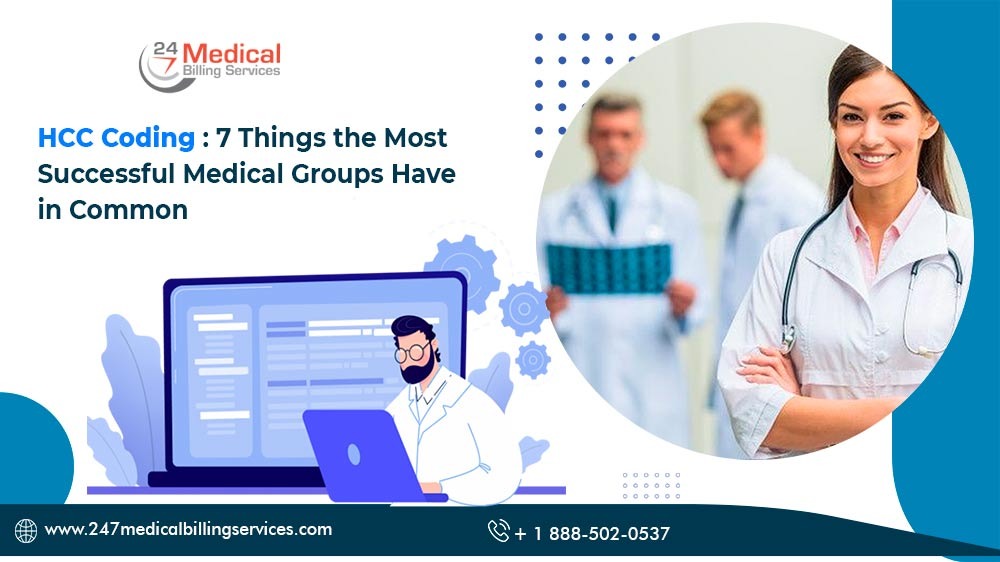
HCC Coding: 7 Things the Most Successful Medical Groups Have in Common
Understanding HCC coding has become critical for healthcare organizations to succeed in new payment models as we transition to value-based care. As a reminder, HCC coding enables providers and billing/coding teams to account for future health risks and costs at the patient level. Thereby, HCC accuracy impacts program success, especially for innovative programs such as Primary Care First.
If your patients are not correctly coded, your patient panel may be assigned to the incorrect risk group. Inaccurate risk classification has significant financial implications for the potential payments your healthcare organization will receive. Therefore, it is crucial to implement the following strategies to improve the HCC coding performance:
- Adhere to the M.E.A.T. Criteria
The only way to support a diagnosis for a face-to-face visit is via M.E.A.T. Each encounter should be treated as distinct and in accordance with M.E.A.T. criteria which are as follows:
- Monitor: signs, symptoms, disease progression, and disease regression.
- Evaluate: test results, medication effectiveness, and treatment response
- Assess: Ordering tests, discussion, reviewing records, and counseling
- Treatment: Medication, therapies, and other treatment options
M.E.A.T. is at the heart of risk management. To be captured for risk adjustment, documentation for a valid diagnosis should provide evidence of how the condition is monitored, evaluated, assessed, or treated (M.E.A.T.).
- Provider Education
As HCC coding is a new concept far from intuitive, educating clinicians along the way is critical. The most crucial educational point to emphasize to providers is the importance of accuracy, not the score itself. The providers can be taught about the clinical and monetary value of specificity. They can also be educated on the specifics of the tools and workflows for patient management and reporting. At the system level, education should focus on the importance of appropriate risk adjustment and impact quantification to justify resource allocation, as well as compliance.
- Improve Decision Support with EMR Optimization
Although provider education is necessary to improve HCC coding accuracy, it is also critical to incorporate appropriate coding into the daily encounter workflow. Some potential strategies include ACO identifiers in the EMR, decision-support tools that can be activated for specific populations, and HCC diagnosis alerts for past codes.
- Preparation of an Accurate Problem List
For years, many healthcare organizations have been entering data into an EMR, resulting in a large amount of data and, most likely, an inaccurate problem list. To ensure an accurate problem list, remove duplicate and inactive diagnoses, identify critical areas with discrete data in the EMR, and prioritize results using a diagnosis preference list that includes HCC suffix codes and RAF values.
- Tracking Performance
Measuring outcomes provides healthcare organizations with compelling data to present to stakeholders, such as an increase in average RAF score, an improvement in crucial problem list diagnoses, a decrease in the number of members who do not have an annual visit, and an increase in the percentage of persistent condition diagnoses resolved.
When healthcare organizations have collected enough data to present to stakeholders, the next step is identifying future opportunities for further improvement. Examining unresolved persistent criteria for specific populations is one place to look for these.
- Use Coding Experts
After addressing a patient's conditions and documenting their findings in clinical notes, providers must ensure that the appropriate HCC codes are added to the claim. This is not as simple as it appears. It isn’t easy to convert clinical documentation into HCC codes. Doctors are rarely expert coders, and their time is incredibly valuable.
The coder review process must be completed concurrently rather than retrospectively. Coder reviews should take place before claims are submitted to reduce rework, duplication of efforts, and the necessity for alternate submission forms to adjust initial claims. All thanks to coding experts!
- Prepare for Each Patient Visit
Preparing health care providers for complex HCC patients ahead of time allows them to address chronic conditions and capture HCCs more wholly and accurately.
It is critical to use care coordinators to recognize incoming patients with HCC conditions and share that information with your physicians. The process can be performed as part of the morning huddle or pre-day prep, or it can be done through EMR alerts. When prepared, providers can better diagnose, treat, and document patients, regardless of the method.
Best Strategy – Outsourcing Medical Billing & Coding!
Partnering with an experienced medical billing and coding company is the best way for physician practices to stay updated on changes in CMS's risk adjustment model, ICD codes, HCC coding and crosswalks, and audit procedures. The companies such as 24/7 Medical Billing Services are known for their AAPC-certified coders educated on HCCs and up to date on best practices. They will collaborate with healthcare providers to ensure appropriate diagnosis codes are reported and complete clinical documentation. Adherence to M.E.A.T. criteria and specificity in coding will improve your practice reimbursement significantly under the new payment models.
Read more: A Detailed Guide On HCC Coding


.png)
